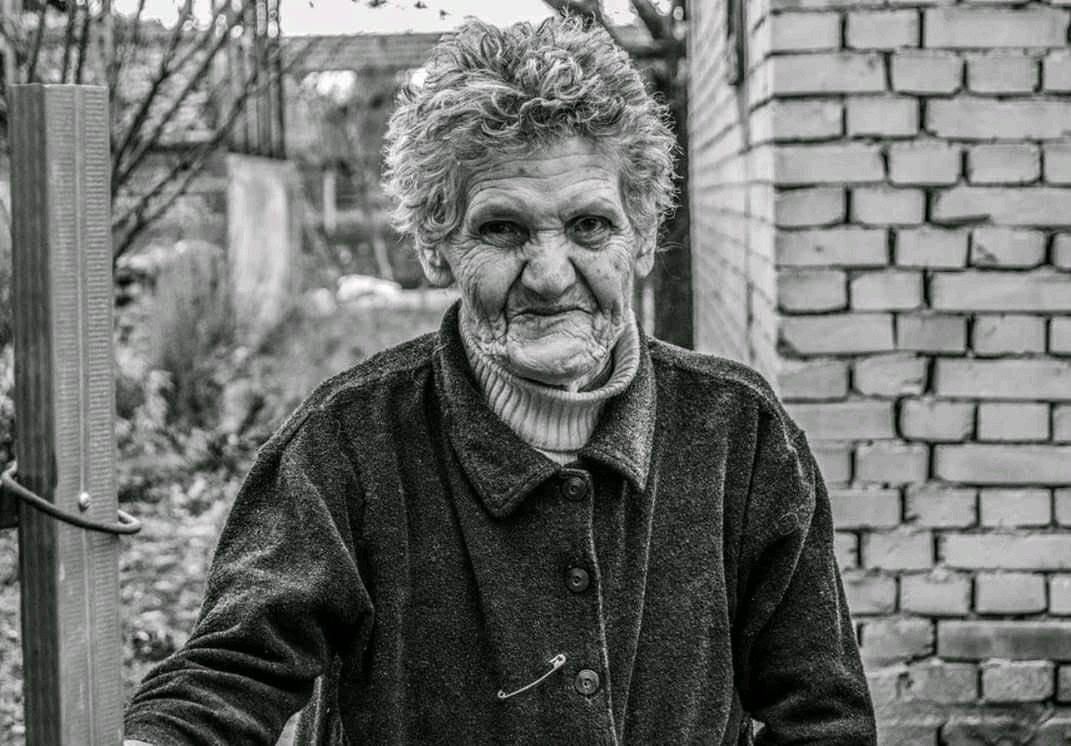
This is grandma Vinka . She is probably a Serb. Maybe a Croat? But she could be a Bosnian too. It doesn’t really matter, because her life path wouldn’t be much different, whoever she is. Probably.
Vinka lives in a small village, somewhere in the Balkans . Her husband probably passed away years ago and her son moved to some far, foreign land. She has probably seen her first grandchild when her son was visiting 20 years ago. Occasionally, she gets photos by mail and keeps her house like a memorial. Every wrinkle and cease on her face is a potential which never came to be. Because she was born in the wrong place, at the wrong time and in the wrong gender. Probably.
Vinka was that little girl who ate the leftovers for supper, because brothers eat first.
She was that little girl who didn’t go to school, but her brothers did.
During childhood, Vinka was homeschooled in all those vital things like cooking, cleaning, washing, ironing and sewing. Most importantly, Vinka was taught how to keep quiet , because that’s how a woman pleases a man and that’s how a woman pleases another woman.
If Vinka was born into a poor family somewhere, perhaps on a farm, Vinka would be nothing but yet ‘another plate on the table. She would be the cost . From an early age, Vinka knew of a guilt of being a female . Probably. If somehow, by sheer luck or having more attentive parents, Vinka managed to show some extra skills and talent, most likely that her poor parents would want Vinka to learn how to read and write, so she could have some basic education and eventually to marry a good man and ‘’good’’ would be anyone willing to take care of her. In that case, Vinka’s mother would probably take her to a village market and right next to the place where men were selling and trading cattle, Vinka would be given to a richer family. Some would say that she was sold, but there was no money exchange, just the promise that Vinka will get a nicer dress , some education and the monthly allowance which Vinka would probably send back to her family. All of this, as long as she keeps behaving nicely and doing things around the house with her new family.
However, this is not what happened to her, even though it could of, for Vinka could be everywoman of the Balkans. The principles she was brought up on still resonate in a modern Balkan society. Like an entity, Vinka could stand for all those women who were first, but came the last . But she knows nothing about this or about things being potentially different and she doesn’t care.
Today, grandma Vinka is witnessing some changes around her, firstly with her neighbor’s daughters. They are being educated, going to work every day, wearing pants and driving cars, sometimes talking back to their surroundings, re-marrying or having children out of wedlock. And Vinka is thinking about how things were more simple and easy in her time, when women knew their place . Probably Vinka asks herself: why did women had to speak at all ? Why did they ever want anything? They only hurt themselves this way, because now women have to do and be all these new things and, at the same time, they need to stay Vinka, the everywoman of the Balkans.
Photo courtesy: @Daliborka ‘‘Baba Vinka’’
